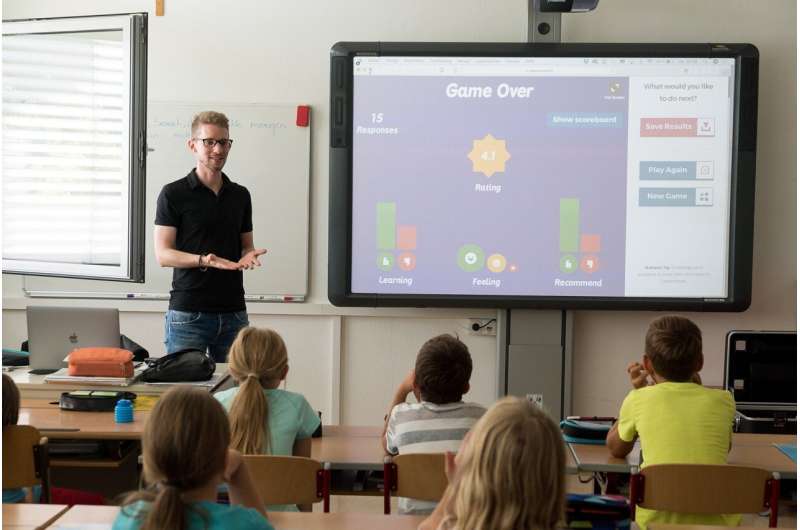Supporting teachers' mental health

La Trobe University research reveals an inexpensive "peer support" model used extensively by frontline health workers may be the solution to teacher burnout, which has left schools across the country unable to operate effectively.
Published in Teachers and Teaching, the study showed that of 40 educators who took part in the pilot program, all reported positive changes to their own mental health, better workplace culture and an increased ability to cope in the classroom.
La Trobe University Master of Education Coordinator, Dr. Anne Southall, said the need for mental health support structures for teachers was becoming increasingly clear.
"We know the pandemic put a lot of pressure on teachers—but, even before that, two thirds of educators experienced occupational stress, and over half identified as having anxiety," Dr. Southall said.
"Teachers are burning out and leaving the profession in droves, causing shortages across metro and regional schools. There is an urgent need to put structures in place to support them—and this model may prove critical,"
Dr. Southall said the trial showed that peer support in the form of "reflective circles" significantly improved teachers' ability to adapt to classroom challenges with a culture of openness, flexibility and compassion, allowing them to find solutions to complex problems together.
"The wonderful thing about this model is, once training has occurred, it is entirely self-supporting—schools don't have to employ a professional to run the program, and they can adapt the timing and structure to suit their needs," Dr. Southall said.
Over a three-year period at three regional Victorian schools, researchers trialed a peer supervision model, where critical reflection in a small group setting was used to generate strategies and solutions to complex challenges teachers were experiencing in the classroom—from disruptive students to unhelpful parents.
Associate Professor Fiona Gardner from La Trobe Rural Health School said systematic support structures such as reflective circles are a key pillar of allied health professions like social work and psychology, but the model was also well-suited to an education setting.
"We know that social workers and psychologists, who deal with incredibly complex, difficult and often traumatic circumstances, need peer support to ensure they can cope with the mental and emotional toll this takes on them," Associate Professor Gardner said.
"Teachers are finding they now have to take on similar roles in supporting their students, and the Reflective Circle Education Model can provide them with a space to develop a deeper understanding of their personal and professional interactions and encourage mutual support."
Co-Principal of St Peter's Primary School in Bendigo, Jen Roberts, said the model could make an enormous difference to the well-being of teachers at the school.
"Teaching is a complex and stressful profession, with teachers finding their roles are increasingly changing. With one in seven students experiencing mental health issues, teachers are often required to provide mental health support, while having no formal structures in place to safeguard their own emotional well-being," Co-Principal Mick Chalkley said.
Teachers taking part in the study reported that reflective circles generated significant mutual support between colleagues, helped them see things differently and build confidence and flexibility to better meet the needs of students.Teacher and principal stress running at twice the rate of general working public, hindering pandemic recovery
No comments:
Post a Comment